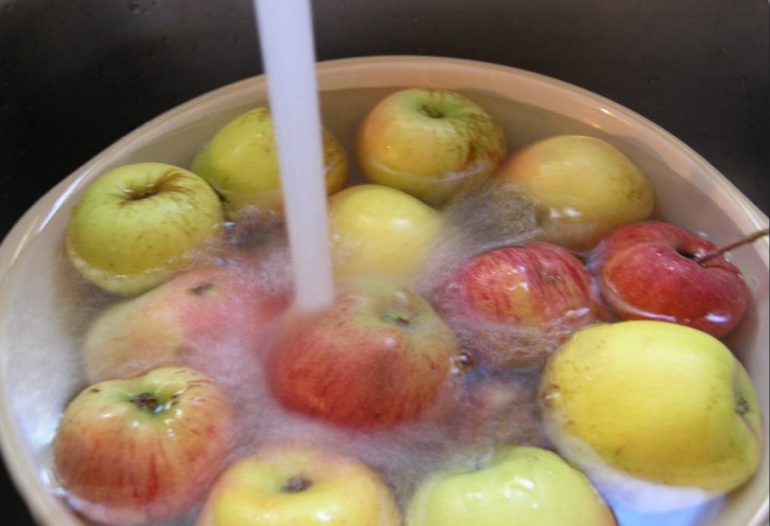Baking soda is a magical product with so many practical uses, such as curing heartburn, cleaning white clothes, and now, new research has found that this wonder ingredient can remove up to 96% of pesticides from fruit and vegetables.
A team of researchers at the University of Massachusetts has conducted a study on gala apples to determine baking soda’s efficacy in cleaning the fruits.
During the research team has applied two most common pesticides thiabendazole and phosmet to organic gala apples. Thiabendazole is a fungicide that has been previously noted for its capacity to penetrate apple peels.
Phosmet is a popular insecticide, the experts say. The scientists have then washed the contaminated apples with three different liquids, which include: tap water, a one percent baking soda/water solution, and a commercial bleach solution approved by the United States Environmental Protection Agency.
The commercial bleaching solution is the most commonly used liquid in cleaning produce.
The results have revealed that submerging apples in a baking soda solution for two minutes removed more pesticides than a two-minute soak in the bleach solution, or two minutes of rinsing in running tap water. But it took 12 to 15 minutes in the baking soda solution to completely get rid of the pesticides used in this study
How to Use Baking Soda to Wash Produce
Baking soda can be used to scrub pesticide residue from hard-skinned vegetables and fruits. Because baking soda is an alkaline salt, it makes an eco-friendly and effective produce wash.
To use it, simply add a few tablespoons of baking soda to a bowl of water when soaking your fruits and vegetables, which should be done a few good minutes before rinsing them with fresh cold water. Or, shake some baking soda on produce and scrub away with a produce brush.
By the way, this method is especially great for things like musk melons, because their rinds have all kinds of nooks and crannies that love to trap microbes and dirt.
Source: theorganicwellness.com
